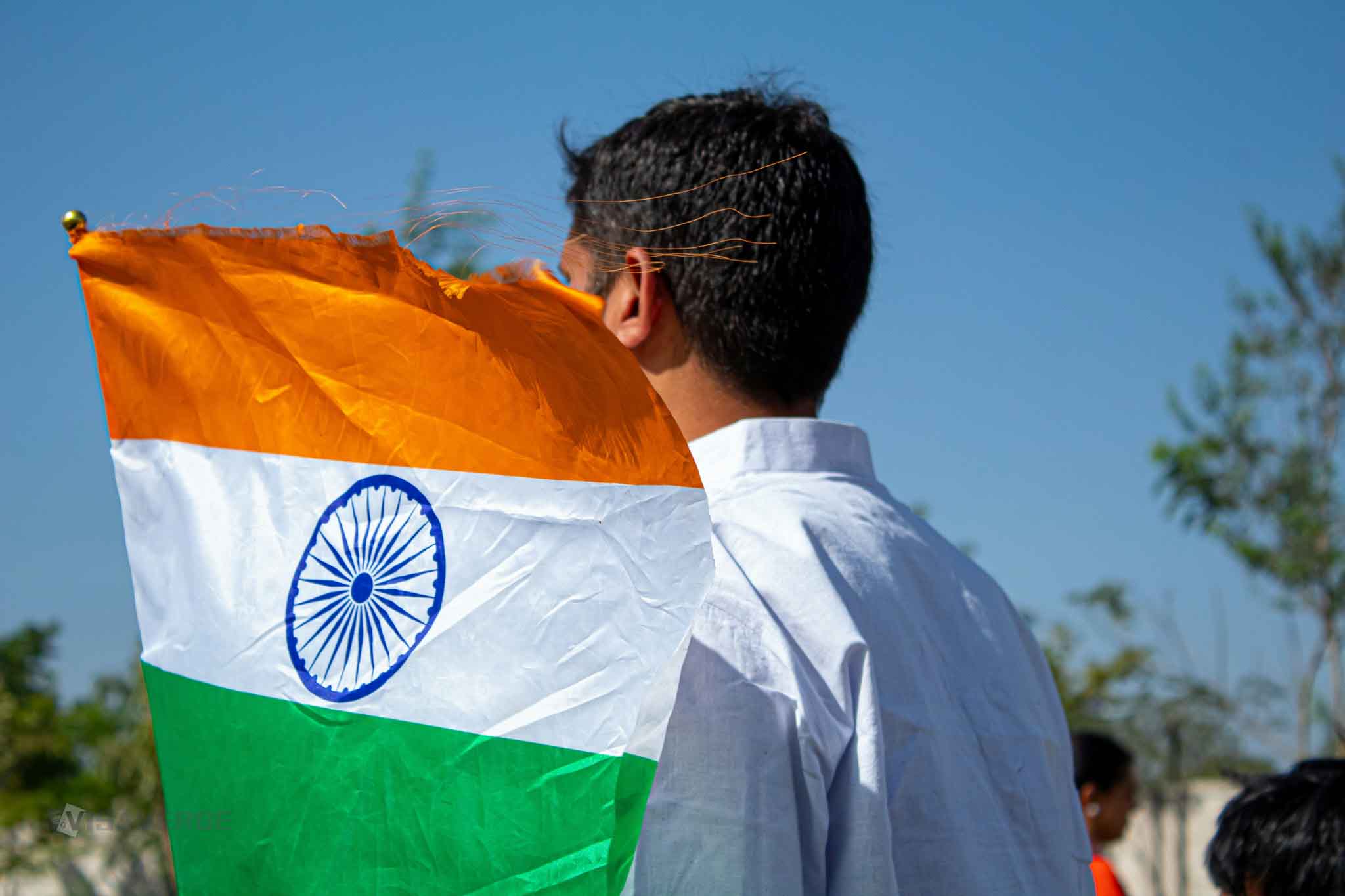Key Takeaways
• US Embassy warns Indian citizens: even one day of visa overstay can trigger deportation and permanent reentry bans.
• Trump’s second term administration strictly enforces 3-year or 10-year bans for overstays of over 180 days or a year.
• Dropbox visa renewal eligibility for Indian applicants reduced from 48 to 12 months, causing more in-person interviews and delays.
The United States Embassy in India has recently issued a direct warning to Indian citizens about the serious risks involved with overstaying their visas in the United States 🇺🇸. This warning comes at a time when the U.S. government is taking stronger action against immigration violations, especially since President Trump began his second term in January 2025. The message from the US Embassy is clear: visa overstays can bring harsh consequences, including not just removal from the United States but also the possibility of never being allowed to return in the future.
Embassy Warning: What Indian Citizens Must Know

On May 17, 2025, the US Embassy in India posted a message on its social media platform X (formerly Twitter), stating: “If you remain in the United States beyond your authorized period of stay, you could be deported and could face a permanent ban on traveling to the United States in the future.” This statement is not just a general advisory. It is aimed directly at Indian citizens—students, workers, tourists, and anyone else with a valid nonimmigrant visa—highlighting that US immigration authorities are watching visa compliance more closely than ever.
The US Embassy also explained that violating visa terms can deeply affect your future plans. If you are an Indian citizen with hopes of studying, working, or running a business in the United States, ignoring the rules could close those doors for good. If you are unable to leave the country before your visa expires because of a family emergency or another unexpected event, you are advised to contact the United States Citizenship and Immigration Services (USCIS) straight away, to see what options might be available to you.
The Serious Consequences of Overstaying a US Visa
Indian citizens—and in fact, all visa holders—need to know that staying even a single day past the period allowed on your visa can be risky. But the penalties get much worse the longer you stay past your approved date.
– If you overstay your visa by more than 180 days but less than one year, you are subject to a 3-year ban on re-entering the United States.
– If you overstay by one full year or more, you face a 10-year ban.
These official periods are set by US law and enforced closely. Deportation is almost automatic once an overstay is discovered, and the effects reach further than just being sent home.
- Your current visa, even if still valid for months or years, will be cancelled right away.
- You lose any work permission you might have had, and benefits such as a U.S. driver’s license may become impossible to renew or keep.
- It becomes much harder, perhaps impossible, to return to the United States for any reason in the future. Your name is flagged in US systems, so future visa applications are likely to be denied or delayed.
- If you planned to change or adjust your status (such as applying for a green card), overstaying can make that almost impossible.
- Even years later, overstays can bring greater attention and higher scrutiny to your visa requests.
As reported by VisaVerge.com, the risks of overstaying a US visa are now front and center in US government policy, especially for Indian nationals.
The Trump Administration’s Approach to Immigration Enforcement
President Trump’s second term, starting in January 2025, has seen a number of changes in immigration enforcement. Indian citizens—especially those with plans to study, work, or visit the United States—have felt the impact of these changes in many ways.
- One of President Trump’s first acts was to declare a national emergency at the southern US border. This allowed for more resources and attention on all matters related to border and immigration enforcement.
- Hundreds of immigrants, including Indian nationals, have been deported for border violations and visa overstays.
- There has been a stronger focus on workplace enforcement, with more raids by Immigration and Customs Enforcement (ICE), particularly in locations known to hire foreign nationals.
- The rules surrounding H-1B visas, which are often used by Indian tech workers, have been made tighter.
- Efforts to stop automatic citizenship (also called birthright citizenship) for children born in the country to undocumented parents have been pushed forward.
- Strict reminders have gone out on the Alien Registration Act, requiring all foreign nationals in the US for more than 30 days to register with federal authorities.
Steps like these show that the US government is no longer offering much room for error when it comes to following visa and immigration rules. Anyone not carefully respecting the terms of their stay risks both forced removal and permanent separation from US opportunities.
Tougher Rules for Visa Applications and Renewals
The changes under President Trump go beyond just increased enforcement after people arrive. They now affect how Indian citizens and others apply for US visas in India in the first place.
One of the latest changes involves the “dropbox” system, which is a simpler process for visa renewal without a full interview. The eligibility period for using this system has just been cut from 48 months to 12 months. This change means that far more Indian visa seekers will have to attend in-person interviews at the US Embassy or consulates before getting a new visa stamp.
Because of more in-person interviews, delays and longer wait times are likely. If you are an Indian citizen planning travel, work, or study in the United States, you should apply as early as possible and make sure your supporting documents are correct and complete.
You can confirm current processes and requirements for all visa categories, as well as check appointment wait times or dropbox eligibility, by visiting the official US Visa Information and Appointment Services website. Staying up to date on these changes is important for anyone hoping to visit the United States from India.
Special Concerns for Indian Citizens Studying or Working in the US
Indian citizens make up one of the largest groups of international students and skilled workers in the United States. In 2024, over 268,000 Indian nationals studied at US universities, and tens of thousands more worked on H-1B and other employment visas.
For Indian students, a visa overstay does not just end your opportunity to return as a student. It may also impact future options for jobs, research, visiting family, or even attending conferences, since immigration records are shared between US government departments.
For Indian professionals, especially those in high-demand tech or medical fields, losing eligibility can mean three or ten years away from potential work opportunities, partnerships, or career growth in the United States.
For frequent business travelers or tourists, a visa overstay—even one caused by a personal or medical emergency—can damage your visa history in the eyes of both the US Embassy and US border officers.
Because of these strict changes, Indian nationals in the United States must keep careful track of their visa end dates. Before a visa expires, it’s wise to plan travel or extension applications well in advance. If something does happen unexpectedly, get in touch with USCIS at once. Waiting until you are already past your allowed stay can close many doors and lead to immediate penalties.
What Steps Should Indian Citizens Take Now?
If you are an Indian citizen holding a US visa or planning to apply for one soon, there are a number of steps you can take to avoid the new penalties and complications associated with visa overstays:
- Know Your Dates: Always check your I-94 record (the official record of your arrival and authorized stay) at the US Customs and Border Protection website. Never assume your visa expiry date matches your allowed stay; the “admit until” date is what matters.
- Leave or Extend in Time: Plan to leave the US before your authorized period runs out. If you want to stay longer, explore official options for changing or extending your status before your limit is reached.
- Keep Records Ready: Always keep copies of your passport, visa, entry stamp, travel tickets, and I-94. Proper records make it easier to prove you followed the law if asked by US officers.
- Understand Automatic Penalties: Know that even a small overstay can lead to the cancellation of all current visas and make future applications much harder. Intent does not matter in most cases.
- Stay Updated: Check updates from the US Embassy in India, USCIS, and government resources regularly so you don’t miss new rules or procedures.
- Contact Authorities Quickly: If an emergency keeps you from leaving as planned, contact USCIS as soon as possible. Proactive action shows you are not ignoring US law.
Immediate and Long-Term Effects on Indian Citizens
The decision by the US Embassy to issue this strong and public warning shows how the broader trend in US immigration policy is putting more pressure than ever on Indian citizens to follow visa rules closely.
Short-term effects:
– More Indian travelers, students, and workers will need to prepare carefully, especially for potential interview delays and new rules.
– People currently in the US on a visitor or student visa may feel more anxious about travel plans and extensions, especially in an emergency.
– Greater awareness and personal responsibility are now required, since even honest mistakes may lead to bans or delays.
Long-term effects:
– Some Indian families may be separated for years if a member is banned from re-entering the United States.
– Opportunities for study, employment, and long-term settlement may shrink for Indian nationals if stricter enforcement continues.
– US businesses, universities, and other organizations may experience lower participation or talent pools from India if bans prevent the return of skilled workers or top students.
While visa overstays have always been a concern for immigration officials, the level of enforcement and speed of response under President Trump’s policies mark a clear change. The new focus on quick deportations, long bans, and tighter rules makes it critical to stay aware of your legal obligations at every stage.
Differing Viewpoints and Ongoing Debates
There is some debate over these tougher immigration measures. Supporters of President Trump say that strong rules are needed to keep US borders secure and make sure the immigration system is fair to everybody. They feel that strict penalties for visa overstays discourage fraud and encourage people to follow the law.
Others, including many in the business and education sectors, worry that these harsh bans and quick deportations can harm both the United States and the home countries of affected immigrants. They point to the large number of Indian students and skilled workers who help drive US research, technology, and medicine, suggesting that making it harder for them to visit or stay could hurt the US economy in the long run.
No matter which viewpoint you hold, if you are an Indian citizen hoping to maintain good standing with the US Embassy and keep your future travel options open, following the new rules is the safest path.
Conclusion and Next Steps
The message coming from the US Embassy in India is direct: visa overstays now bring serious penalties, up to and including loss of all chances to return to the United States. These warnings are backed by tougher enforcement actions under the Trump administration, which have led to more frequent deportations and longer bans for those who overstay.
Indian citizens are urged to check their visa conditions, pay close attention to dates and deadlines, and act early if there are any problems that could force them to stay too long in the United States. If you are unsure about your status or rights, consult the US Embassy or check government resources like the US Department of State’s visa information page.
As US immigration policies continue to shift, the best protection available is information and preparedness. With careful planning and timely action, you can avoid the harsh penalties now being enforced and keep your American travel, study, or work goals alive.
Learn Today
Visa Overstay → Staying in the United States longer than the period authorized by your visa or the I-94 admission record.
Deportation → The forced removal of a person from the United States by immigration authorities due to violation of immigration laws.
I-94 Record → An official document issued by Customs and Border Protection showing a non-citizen’s allowed period of stay in the US.
Dropbox Eligibility → A simplified US visa renewal process allowing certain applicants to submit documents without an in-person interview.
H-1B Visa → A temporary visa that allows US employers to hire foreign workers in specialty occupations such as technology or medicine.
This Article in a Nutshell
A stern warning from the US Embassy in India signals a harsh crackdown on visa overstays. With Trump’s policies tightening enforcement, Indian citizens must now track entry records diligently. Failing to leave or properly extend a US stay can destroy future opportunities, bringing bans, cancelled visas, and sudden deportations.
— By VisaVerge.com
Read more:
• Visa Waiver Program grows, but India remains outside US travel list
• Bay County sheriff leads immigration sweep with 21 arrests in Florida
• FBI shifts resources as field offices ramp up immigration enforcement
• F-1 visas denied at US consulate over family ties raise concerns
• Trump Expands Legal Status Path in Deportation Twist













